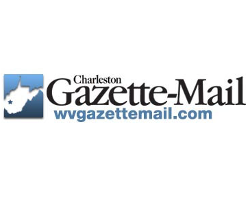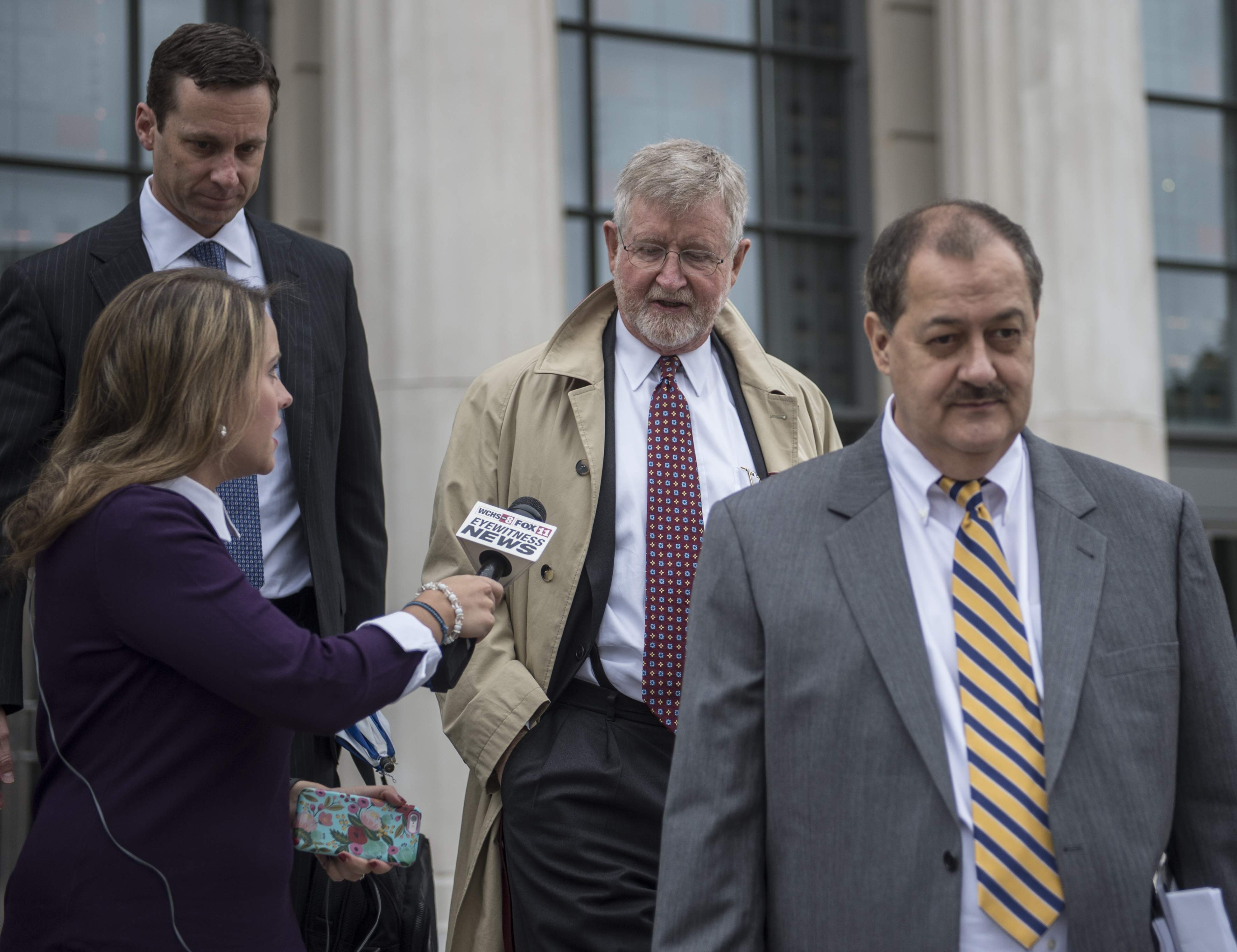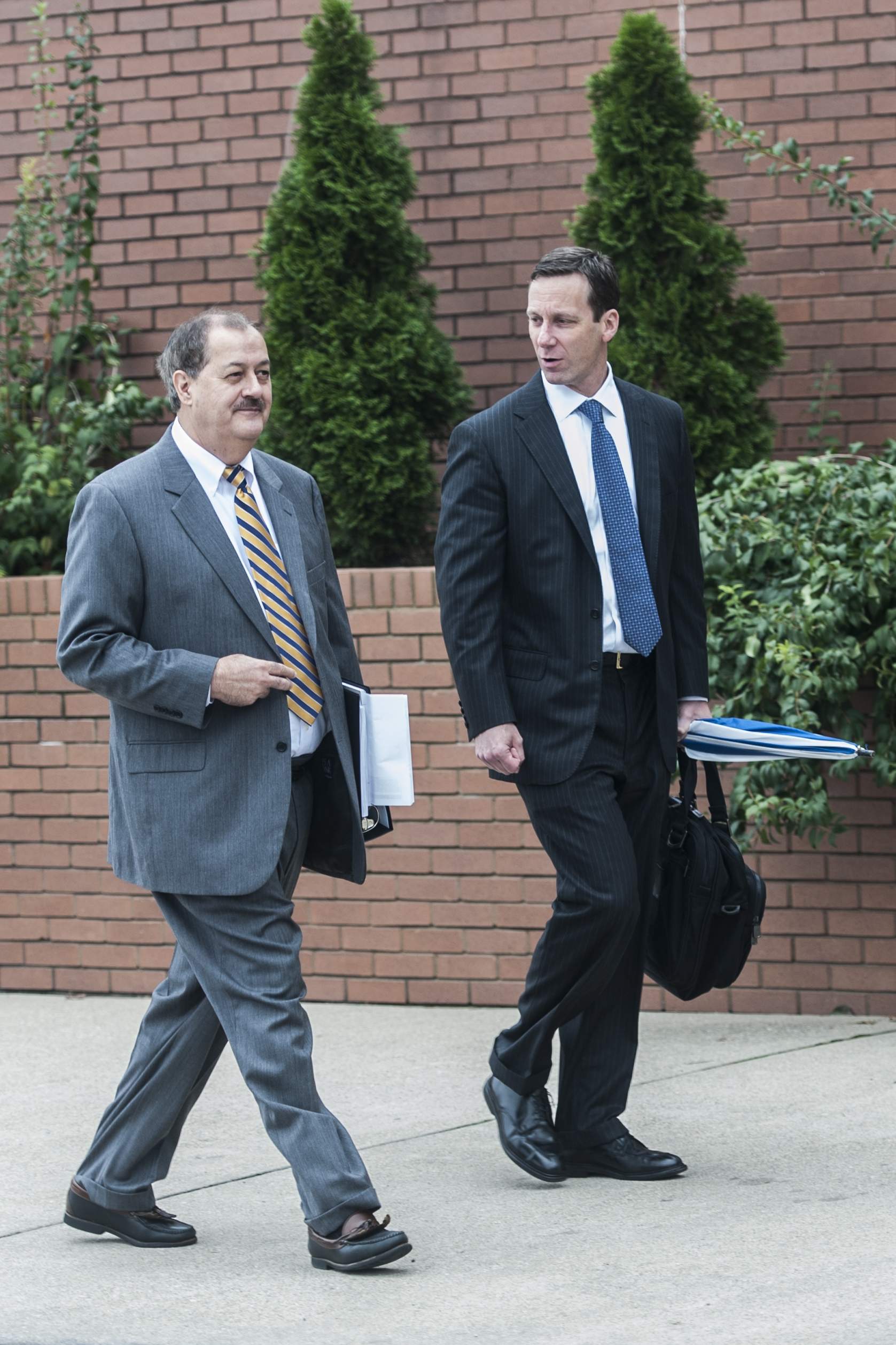Trial Testimony to Focus on Blankenship's Push for Coal Production

October 4, 2015 - On Aug. 5, 2008, Massey Energy Co. CEO Don Blankenship sent one of his frequent and scathing memos to the managers of his company’s coal mines. Blankenship complained that none of them “seem too concerned about costs.”
“In my opinion, children could run these mines better than you all do,” Blankenship wrote. “Look at your costs and figure out what you’re going to do to get it down. Because if we don’t have a better August and September than we had July, you can be assured that stock options are not going to look very attractive.”
Federal prosecutors sprinkled their three-count indictment of Blankenship with examples of such memos.
Blankenship instructs his lieutenants to “run coal” rather than bolt mine roofs to hold “for the year 2525.” He criticizes engineers whom he says think planning mines for good ventilation down the road is “more important than survival of today.” Blankenship brags that he’s “on a mission to seek and destroy costs,” and warns one mine management official, “You have a kid to feed. Do your job!”
“We’ll worry about ventilation or other issues at an appropriate time,” Blankenship told mine managers in a Feb. 11, 2008 memo. “Now is not the time.”
For years, one Massey official who was a frequent recipient of such memos was Chris Blanchard, a mining engineer who went to work for Massey right out of college and rose to a position as president of the Massey corporate group that included the Upper Big Branch Mine, in Raleigh County.
During the civil investigation of the Upper Big Branch Mine disaster, Blanchard was among the long list of Massey officials who asserted their Fifth Amendment right and refused to answer questions from the U.S. Mine Safety and Health Administration and the West Virginia Office of Miners’ Health, Safety and Training. But now, Blanchard is talking and has turned on Blankenship. When testimony starts in U.S. District Court in Charleston in the criminal case against Blankenship, Blanchard — with an immunity agreement in hand — will be among the government’s major witnesses against the former Massey CEO, court records show.
Blankenship, 65, faces a statutory maximum of 30 years in prison if convicted of all three felony counts pending against him. He is charged with conspiring to violate mine safety standards and to thwart U.S. Mine Safety and Health Administration inspections and enforcement. He also is charged with lying to securities regulators and committing stock fraud by orchestrating public statements that defended Massey’s safety practices in an effort to stop plummeting stock prices following the April 5, 2010, explosion that killed 29 Upper Big Branch miners.
Blankenship says he is not guilty and that the prosecution is selective and vindictive, an effort by Democratic political leaders to punish him for his conservative views and Republican political activism.
Jury selection in the case began last Thursday and is scheduled to resume Monday morning at the Robert C. Byrd United States Courthouse, in Charleston.
U.S. District Judge Irene Berger has barred the public and the news media from the courtroom, and has kept turned off the sound from a video feed that spectators are allowed to view from a courtroom across the hall. As of Saturday afternoon, Berger had not ruled on a motion from the Charleston Gazette-Mail and West Virginia Public Broadcasting asking that the proceedings be opened to the public. The judge has not publicly explained the reasons or the legality for the confidential questioning of potential jurors.
The judge required 300 potential jurors to fill out written questionnaires as part of the process of finding 12 jurors and two or three alternates who would give Blankenship a fair trial. A confidential transcript of Thursday’s court session — which was briefly available on a public computer terminal in the court clerk’s office — shows that Berger told lawyers that she wanted to put together a pool of 35 qualified jurors, and then choose the actual jury and alternates from that list.
Typically, the defense would be able to strike 10 potential jurors without giving a reason. The government would be able to throw out 6 without giving a reason. Berger appears to have denied the defense motion for an additional 10 strikes, but she did give each side two additional strikes because they are picking alternates as well as primary jurors.
Court officials last week called in 88 of the 300 jurors who were sent the written questionnaires. If they reach the judge’s target of 35 qualified jurors, they will not have to call in all 300 for individual questioning.
The charges against Blankenship are the result of what is likely to most comprehensive criminal investigation ever following a U.S. coal-mining disaster. More than four years into that probe — which has sent four Massey employees to prison — Assistant U.S. Attorney Steve Ruby, who has led the investigation, questioned Blanchard for about 2½ hours before a federal grand jury that met in Charleston on Nov. 12, 2014. He’s referred to in the indictment as a “Known UBB Executive,” but identified by name in some other court documents.
Blanchard says Blankenship instructed him to “do the minimum” when it came to supporting the mine roof and that Blanchard’s responsibility was “definitely to minimize costs,” according to a transcript of Blanchard’s previously unpublished grand jury testimony. Grand jury testimony is generally secret but, with a judge’s approval, can be turned over to defense lawyers before trial. Blanchard’s testimony was briefly posted to the federal court’s website as part of a defense motion, but it was later removed.
Prosecutors hope to use such testimony to convince the jury that Blankenship put coal production and corporate profits ahead of worker safety at Upper Big Branch.
Although Blankenship is not charged directly with blowing up the mine, the indictments recites a long list of violations of key safety standards — proper mine ventilation, control of the buildup of explosive dust and maintenance of equipment to prevent sparks that could touch off a blast — that four government and independent investigations cited as the cause of the disaster.
In previously undisclosed grand jury testimony, U.S. Department of Labor Special Agent Jeffrey Carter recounted that the Upper Big Branch Mine repeatedly had been cited — 835 citations and 59 mine-closure orders — between January 2008 and early April 2010. Carter testified that, often, serious problems with inadequate ventilation and large amounts of coal dust were not corrected in a timely fashion.
Blanchard told grand jurors that Blankenship, “said there were a certain amount [of violations] that were unavoidable.”
“I think there was an understanding that a certain level of MSHA and state violations were tolerable,” Blanchard testified.
Prosecutors say Blankenship pushed production quotas and cost-cutting measures that left Massey’s mines without adequate staffing to perform important safety tasks, such as cleaning up explosive coal dust or with time to ensure that proper ventilation was in place. As one example, prosecutors say Blankenship agreed to increase staffing at Upper Big Branch in 2008, to help get the mine removed from a list that ensured it received additional scrutiny from MSHA, but after the mine was removed from that list, the needed positions were eliminated.
“Gradually, those positions were transferred into production, vacant production positions, or were eliminated through attrition,” Blanchard told the grand jury.
Court filings indicate that U.S. Attorney Booth Goodwin and his staff hope to introduce into evidence several memos from Blankenship, including the now-famous “run coal” memo that surfaced during previous litigation against Massey. Prosecutors also plan to call a former top Kentucky mine safety official, Tracy Stumbo, and a financial analyst, Frank Torchio, as expert witnesses.
In court records, Blankenship’s lawyers have hinted at a defense that says Blankenship was really a mine safety leader but also a coal company CEO whose job it was to push for lower costs and higher coal production and to “not waste company resources.”
Since the indictment, additional evidence has emerged about Blankenship from a Delaware lawsuit that Blankenship himself filed to successfully seek to force Alpha Natural Resources, which bought Massey in June 2011, to pay the costs of Blankenship’s legal defense in the criminal case, which, through April 1, amounted to nearly $6 million.
Alpha officials argued in that Delaware case that they did not have to pay Blankenship’s legal costs because they had determined that “Mr. Blankenship had reasonable cause to believe his conduct was unlawful.”
During a trial in early April, several Alpha officials testified about a report that recounted the concerns that Bill Ross, a former MSHA official and Massey safety official, raised about safety at Massey operations.
Alpha lawyer Victor Hou testified that the concerns raised by Ross were documented in a memo written by then-Massey lawyer Stephanie Ojeda and provided to Blankenship.
“Bill Ross sort of reports on some of these questions and summarizes sort of what he heard from miners that work at Massey about their concerns and responses to those questions, and, in particular, about what types of violations Massey suffers from, ventilation, cleanup, roof control, and electrical, which are sort of synonymous with some of the memos excerpted elsewhere,” Hou testified, according to a trial transcript.
Ross had been the top mine ventilation specialist for MSHA’s Southern West Virginia district office before taking a job as a top ventilation expert for Massey’s operations in the region. Ross pleaded the Fifth Amendment and refused to talk to MSHA investigators about the mine disaster. His name later surfaced in the MSHA investigation when his successor as the federal agency’s district ventilation expert, Joseph Mackowiak, asked Ross to step in and help fix recurring ventilation problems at Upper Big Branch.
In the Delaware case, Philip J. Cavatoni, executive vice president of Alpha, testified that Ross himself had prepared a written memo about his concerns in June 2009.
Richard Verheij, Alpha’s general counsel, testified that Ross had conducted an “internal audit” in which he “went out to the operations and talked with a lot of employees and reported his observations. Verheij said the Ross memo included observations about “the employees’ beliefs” about the “direction they were getting from senior management,” including “a reference to Mr. Blankenship specifically as to whether he was really serious about following the law.”
In recent court filings, prosecutors have made it clear that they plan to present a parade of coal miners and others who will “testify that the willful violation of safety laws at UBB was a matter of common practice.”
“Evidence may even be offered to show that Massey officials expressly warned [Blankenship] that Massey mines, including UBB, were rampantly committing willful violations,” prosecutors said.
During Blanchard’s grand jury appearance last November, one juror noted that Blanchard was required to provide Blankenship with frequent updates on coal production and costs at his mines, and asked if he also gave the CEO “air quality reports or safety reports . . . and if so, did he then provide feedback or action for you to take?”
Blanchard responded, “No ma’am. I can’t say over the years there was never a time he asked, but it would have been the exception. We usually didn’t get into the details on that aspect of it.”
In Monday’s Gazette-Mail: Experts hope Blankenship prosecution helps improve coal-mine safety.

Don Blankenship (right) walks out of the Robert C. Byrd U.S. Courthouse in Charleston with defense attorneys William Taylor III (center) and Eric Delinsky after potential jurors were released for a lunch break last Thursday during the first day of jury selection for Blankenship’s trial.

Blankenship chats with Delinsky as they walk along Truslow Street to the Spilman Thomas & Battle law offices Thursday.

